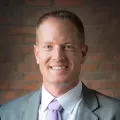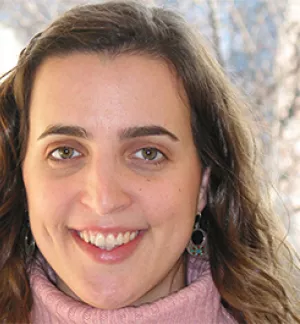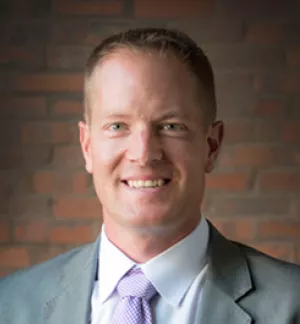Featured in the Belfer Center Spring 2021 Newsletter »
In December 2007, Simone O’Hanlon had only been working at the Belfer Center for a few months when the school invited a major world figure to give a talk in the JFK Jr. Forum. Just before the event, her manager, then-Director Graham Allison, hurriedly walked past Simone’s desk and said, “Come with me!” Graham is known for straightforward feedback and Simone figured she’d made a big mistake. But the next thing she knew, she was seated at a table with Graham, Mikhail Gorbachev, and his translator. The four enjoyed a friendly conversation.
Simone recalls walking back to her desk, thinking, “This is going to be a very interesting job.”
The years since have proven the truth of Simone’s prediction. As Executive Assistant to Graham Allison – the Kennedy School’s founding dean who directed the Belfer Center for 20 years and who continues to teach, write, and lead several major research projects – Simone has witnessed, supported, and shaped an extraordinary array of events, publications, and programs. It’s common for outsiders to marvel at the quality and quantity of outputs from Graham’s office. Colleagues know that this is neither miracle nor mystery; it’s substantially because of Simone.
Working at the Center and Harvard Kennedy School is a natural for Simone, who studied international relations at Boston University. Originally from Liverpool, England, she split her time growing up on both sides of the Atlantic and wanted a career that immersed her in a global community and that included elements of foreign policy, security studies, and economics.
Outside the office, Simone stays busy keeping up with her six-year old daughter, who is currently “training” to be the monkey bars champion of New England. Simone has also taken up modern hand embroidery, and several of her designs were recently featured at the Harvard Staff Art Show.
Simone has seen up close the Belfer Center’s alchemy in transforming an academic dialogue into global impact. “Ideas that may start in small conversations become larger ideas that get discussed at Belfer seminars, then get exchanged with senior figures in government,” she said. “Then – voila! – you see this new policy reported in the newspaper a year later. It’s been fascinating to witness this side of the policymaking process, and how much the Belfer Center contributes to the formulation of a well-honed idea.”
“Simone has been a stalwart of the Belfer Center for almost two decades,” said Graham. “She helped create the center and culture we are all proud of. In every way, she is a consummate professional, but she manages to do this with a modesty and grace that makes her a treasure for us all.”
As busy as Simone and Graham are, they try to remind each other to pause. In the middle of a deadline, it’s not uncommon for Graham to stop and say, “Simone, come and look at how beautiful the setting sun is hitting the cupola of Eliot House.” It’s a reminder, Simone notes, to pause and recognize small moments that bring us joy.
"Staff Spotlight: Simone O'Hanlon." Belfer Center Newsletter, Belfer Center for Science and International Affairs, Harvard Kennedy School. (Spring 2021)




